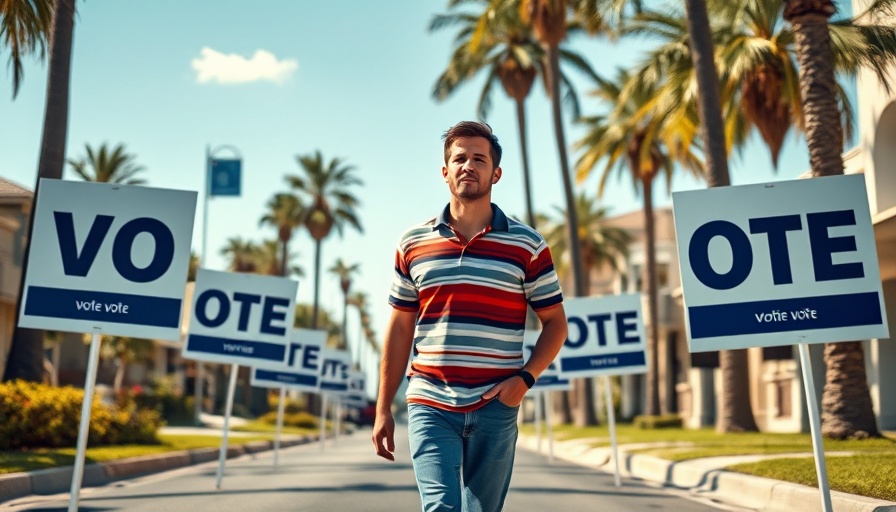
Legal Tensions Rise Over Huntington Beach Voter ID Law
In a notable development for the Huntington Beach voter ID law saga, an Orange County Superior Court judge has shown a willingness to revisit arguments surrounding the contentious Measure A, which allows officials to ask voters for identification during elections starting in 2026. On February 25, Judge Nico Dourbetas expressed his inclination to review the case after the California Court of Appeals prompted him to reconsider an earlier dismissal that declared the matter 'not ripe for adjudication.'
The Core Controversy: Voter ID Requirements
The law passed by Huntington Beach voters has been a topic of significant debate. Proponents argue that voter ID laws are necessary to ensure election integrity, while opponents, including the state attorney general's office, maintain that such measures can suppress voter participation and violate existing California laws aimed at protecting eligible voters' rights. State attorneys fear that a prolonged legal tussle could disrupt plans leading into the 2026 elections.
What’s Next for Huntington Beach?
Following Judge Dourbetas's recent statements, a full hearing on the case is expected this April, where the intricacies and implications of Measure A will be debated. This upcoming court session will delve deeper into the arguments regarding whether the city holds the authority to enforce voter ID requirements independently while navigating state regulations.
Implications for Local Elections
The controversy holds substantial stakes for local residents as the outcome may set precedents affecting how elections are conducted across California. Just last year, Huntington Beach voters approved Measure A with a narrow margin, indicating community support for local control over election policies despite potential state conflicts. Understanding the implications of this law is crucial for residents as they prepare for the upcoming elections and engage in civic discussions.
Future Trends: Voter ID Laws Across the State
As voter ID laws gain traction in various parts of the United States, the unfolding legal scenario in Huntington Beach will likely contribute to broader conversations about voter access, state versus local governance, and electoral integrity. The ongoing legal battle could have ripple effects that shape similar initiatives throughout California, particularly in areas with a propensity for conservative policies, like Huntington Beach.
Connecting with Community Concerns
Local residents are encouraged to stay informed and engaged on this pressing issue. Understanding the legal landscape surrounding voter identification not only reinforces civic knowledge but also empowers citizens to advocate for their electoral rights. Community discussions and forums could serve as platforms to express concerns and share insights on how these developments affect daily lives.
In conclusion, as the court prepares to hear arguments that may deeply influence Huntington Beach's electoral framework, it presents an opportunity for residents to reflect on the importance of informed participation in shaping their community's future.
 Add Row
Add Row  Add
Add 


Write A Comment